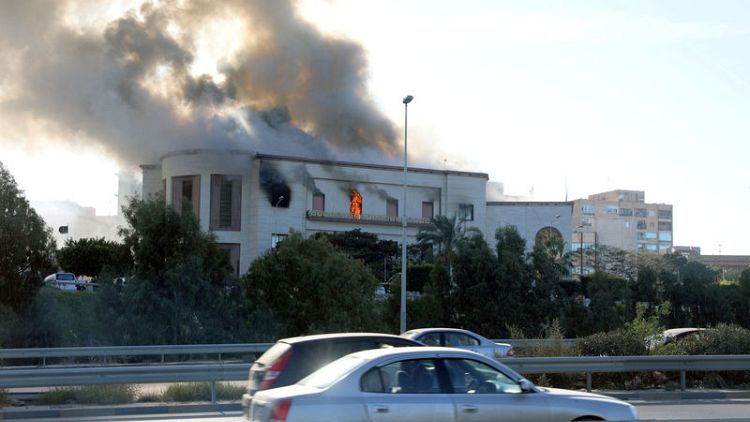RABAT (Reuters) - Setting deadlines for elections in Libya is counterproductive as the political players need to agree first on a political solution to end the country's conflict, Russian Foreign Minister Sergei Lavrov said on Friday.
The comments add to doubts whether the troubled North African oil producer can hold parliamentary or presidential elections by June as sought by the United Nations and Western powers.
"We have repeatedly highlighted the counterproductive character of setting deadlines in Libya," Lavrov told reporters after talks in Rabat with his Moroccan counterpart Nasser Bourita.
Libyans needed to agree first on the "rules of the game" for elections, he added, speaking through a translator.
Under a French plan, Libya was meant to hold national elections on Dec. 10 but the idea was dropped due to a spike in violence in the Tripoli and a lack of progress between rival parliaments in the west and east to find a political solution.
Libya has two governments, the internationally recognised one in Tripoli and a parallel version in the east, a result of conflict going back to the toppling of Muammar Gaddafi in 2011.
U.N. Special Envoy Ghassan Salame said in November he hoped elections would happen by June but so far there is no law or constitutional frame in place for a vote to go ahead.
(Reporting by Ahmed ElJechtimi; Writing by Ulf Laessing; Editing by Robin Pomeroy)


